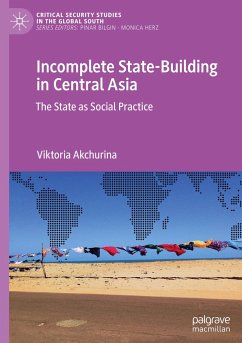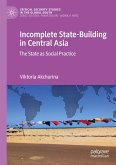This book is about transformation of the state and an incomplete state-building. It defies the transitology assumption of continuity, linearity and dichotomy of formal and informal in the transformation of the state. Contrary to the conventional approaches, it claims that any social order or its political scaffolding, the state, is always incomplete and we need to develop cognitive maps to better understand that incompleteness. It reflects on the social practices, processes and patterns that evolve as a non-linear result of three sets of factors: those that are historical, external, and elite-driven. Three Central Asian states - Uzbekistan, Tajikistan, and Kyrgyzstan - are examined here comparatively as case studies, as Central Asia represents an interesting terrain to challenge conventional understanding of the state. Specifically, the book captures a paradox at hand: how come three states, which made different political, economic, cultural, and social choices at the outset of their independence in the 1990s, have ended up as so-called "weak states" in the 2000s and onwards? This puzzle can be better understood through looking at the relationship among three main sets of factors that shape state-building processes, such as history, external actors, and local elites. This book applies an interdisciplinary approach, combining political anthropology, political economy, sociology, and political science. It helps conceptualize and understand social and political order beyond the "failed state" paradigm
Bitte wählen Sie Ihr Anliegen aus.
Rechnungen
Retourenschein anfordern
Bestellstatus
Storno








